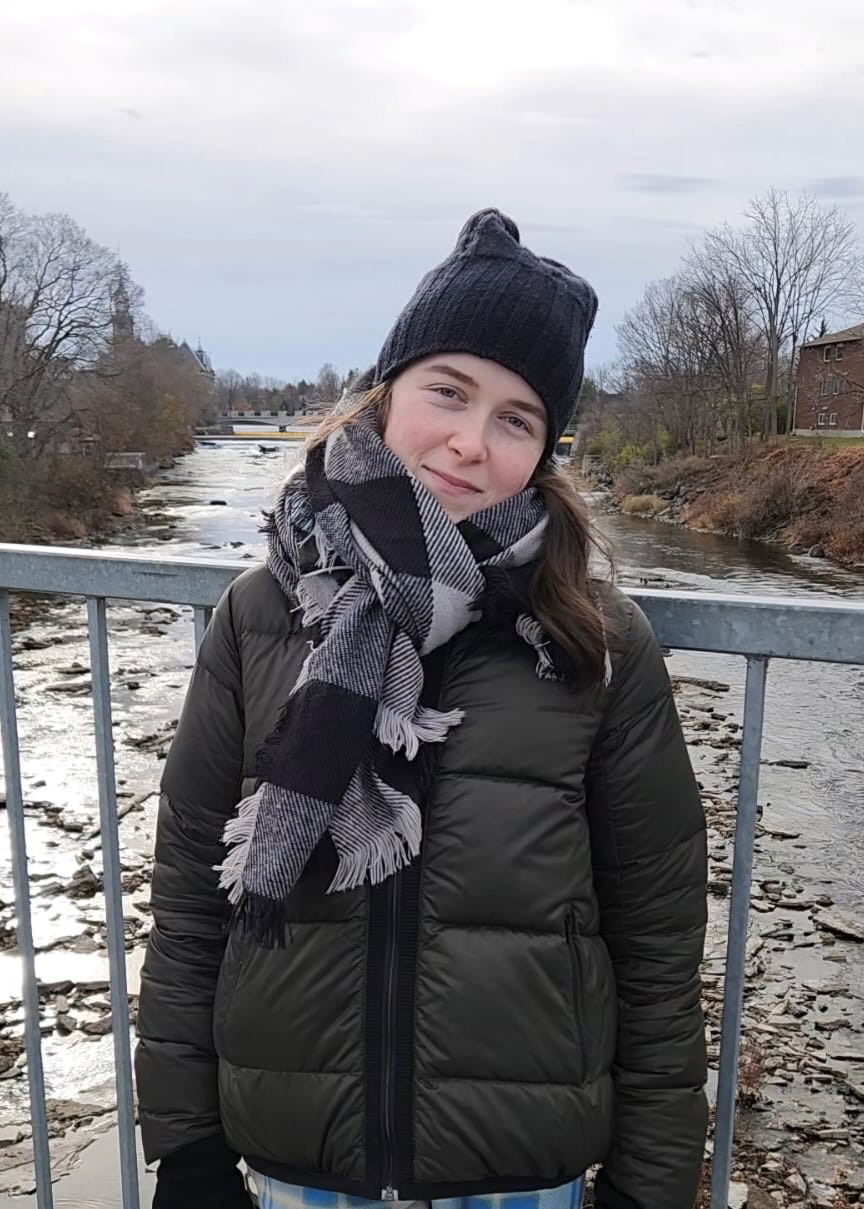Bio: Lights out and away we go! My name is Anastasia (she/her) and in another life, I would have loved to call myself a Formula 1 race engineer. In all seriousness, my current passion for the sport parallels my journey in chemistry, both demanding precision, adaptability, and hard work. I am truly grateful for the mentors that have guided me, as well as the fellowship opportunity I was awarded last summer. My small experiences have led me to gradual successes and I am proud to be graduating as a Biological Chemistry Specialist this year.
It wasn’t until my last two years of study that I learned how to ask for help, how to adjust when nothing seems to go as planned, and most importantly, how to find joy even in the smallest of wins. It is never too late to make these realizations and to find your rhythm. If my excerpt may resonate with even one person, then I am happy to have done my part as an upper-year student.

Program: 4th Year Undergraduate
Campus: St. George
Area of Interest: Biological Chemistry Specialist
Chemistry Stories asked:
You are doing a CHM499Y Research project with Prof. Tim Bender, isn’t that right? What are you studying, and how did this opportunity arise?
During my summer project under the supervision of Professor Bender last year, I hoped for a seamless transition into my fourth-year thesis. Fortunately, the application and interdisciplinary nature of this project captured my interest immediately. The biological application is rooted in Photodynamic therapy (PDT) which is a state-of the-art treatment that selectively and specifically induces cell death of various hard-to-reach diseases. As phthalocyanines (Pcs) are promising PDT agents, my goal was to synthesize an appropriate Pc with enhanced solubility and biocompatibility. What makes me most proud of this project is that this was the first time that this appropriate material was synthesized in our laboratory. Being the first to create a new starting point with complete independence felt rewarding.
Did you always know that you wanted to study chemistry?
As a highschooler, I was convinced that I would become a pediatrician as I wanted to work with people and science, and improving children’s lives seemed quite fulfilling. After my first year in the general Life Sciences program, I realized that memorizing pre-med definitions was not for me. Before committing to a program, I recalled that I enjoyed the meticulous work of chemistry in high school (as meticulous as it was). With that, I understood that I appreciated hands-on work and that I was still able to support people’s health by bridging chemistry as a foundation of biology.
What is your favorite fact about chemistry?
To be completely honest, I have never been one to treasure random facts about chemistry, but I recall being a young highschooler with a realization that everything around me was made through chemistry to be quite cool. Moreover, a moment of inspiration that I’ll cherish was during Professor Chin’s lecture in CHM347 when I learned the potential of capturing CO2 and converting it back into energy. From then on, I was certain that chemistry can provide real-life solutions.
Have you ever presented at a research conference or participated in a Chemistry Department poster session?
I had the awesome opportunity to present a summer research poster at the Chemistry Department summer poster session last year on the synthesis of a brominated phthalocyanine (Pc) for organic solar cell applications. More recently, I presented my current research project at the Trinity College Undergraduate Research Conference which was an excellent challenge to communicate my work to an interdisciplinary audience.
What advice would you give new U of T undergraduates considering a chemistry specialty?
A speciality surely has a nice ring to it, but the key take away is that whether you choose a major or a specialist program, it will not define your undergraduate career. What will truly matter, is that you work hard and believe in yourself. One advantage of the chemistry specialist is the smaller class sizes which may help foster your network of familiar faces. Surround yourself with good people because we all need to hear that we are doing well once in a little while.
Take advantage of research opportunities—U of T has amazing faculty and labs where you can apply what you’ve learned. And don’t hesitate to ask questions or seek guidance. You’ll learn the most when you stay engaged and open to new ideas.
My small experiences have led me to gradual successes and I am proud to be graduating as a Biological Chemistry Specialist this year. --Anastasia Leshchik
Related Links: Anastasia Leshchik is among this year's Undergraduate Excellence Awards recipients.


